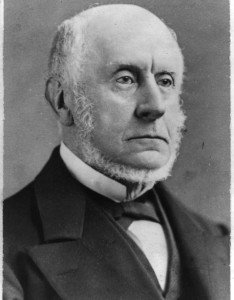
Charles Francis Adams was an American historical editor, politician and diplomat. He was the son of President John Quincy Adams and grandson of President John Adams, of whom he wrote a major biography. PHOTO: LIBRARY OF CONGRESS
It’s now 150 years since a trans-Atlantic cable finally crackled into continuous action after nine years of false starts and disappointments. The transmission speed of up to eight words a minute seemed to the Victorians almost godlike. Small wonder that the first telegram in the U.S., sent about two decades earlier, had read, “What hath God wrought.”
Our desire for instantaneous dialogue is as old as language itself. Contemporaries praised the masterful use of rapid communication by Persian King Xerxes I, who ruled from 486 to 465 B.C. and was famous for having slaughtered the Spartans at the Battle of Thermopylae. According to the Greek historian Herodotus, Xerxes’ messengers were the best in the ancient world, for “neither snow nor rain nor heat nor night holds back for the accomplishment of the course.” That sentiment, translated a bit differently, ended up chiseled in stone above the front columns of the New York City Post Office on Eighth Avenue. Continue reading…





